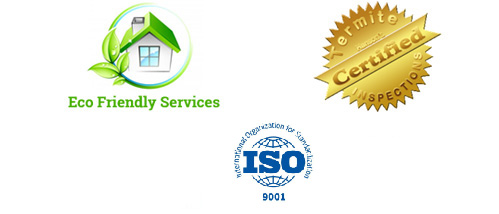
Warehouses are the backbone of supply chains, storing everything from electronics to food products. However, their vast spaces, stored goods, and constant movement of shipments make them prime targets for pest infestations. Pests in warehouses aren’t just a nuisance—they threaten inventory, employee safety, and business continuity. At Rapid Pest Control, we specialize in protecting industrial spaces from these silent invaders. Here’s a breakdown of the most common warehouse pests and proven strategies to keep them out.
Top 5 Pests Threatening Warehouses
- Rodents (Rats & Mice)
- Why They’re Dangerous:
- Chew through packaging, wiring, and insulation, causing fires or equipment failure.
- Contaminate goods with droppings, urine, and hair, leading to product recalls.
- Spread diseases like Salmonella and Hantavirus.
- Signs of Infestation:
- Gnaw marks on boxes or wires.
- Droppings near walls or storage areas.
- Nests made of shredded materials.
- Why They’re Dangerous:
- Cockroaches
- Why They’re Dangerous:
- Thrive in warm, humid areas near machinery or drains.
- Spread pathogens like E. coli and trigger allergies.
- Multiply rapidly, infesting entire sections.
- Signs of Infestation:
- Egg casings or shed skins in corners.
- Musty Odors and smear marks on surfaces.
- Why They’re Dangerous:
- Stored Product Pests (Moths, Beetles, Weevils)
- Why They’re Dangerous:
- Infest grains, textiles, and dried goods.
- Larvae contaminate products, rendering them unsellable.
- Signs of Infestation:
- Small holes in packaging.
- Larvae or adult insects in stored items.
- Why They’re Dangerous:
- Birds (Pigeons, Sparrows)
- Why They’re Dangerous:
- Nest in rafters, HVAC systems, or loading docks.
- Droppings corrode equipment, damage inventory, and spread diseases like Histoplasmosis.
- Signs of Infestation:
- Nests in high corners.
- Accumulation of droppings on floors or machinery.
- Why They’re Dangerous:
- Ants
- Why They’re Dangerous:
- Forage for food spills or crumbs, contaminating clean areas.
- Damage packaging and electronics with nesting.
- Signs of Infestation:
- Trails of ants near food storage or trash areas.
- Why They’re Dangerous:
How Pests Infiltrate Warehouses
- Open Doors & Loading Docks: Pests hitchhike on incoming shipments or slip through open doors.
- Cracks & Gaps: Small openings in walls, roofs, or foundations provide entry points.
- Poor Sanitation: Spills, unsealed trash, and food residues attract pests.
- Clutter: Stacked boxes and unused equipment create hiding spots.
Proven Strategies to Prevent Warehouse Pest Infestations
- Seal Entry Points
- Action: Conduct regular inspections to identify and seal cracks, gaps around pipes, and damaged door seals.
- Pro Tip: Install door sweeps and air curtains at loading docks to block pests.
- Maintain Strict Sanitation Protocols
- Action:
- Clean spills immediately, especially in food storage areas.
- Store trash in sealed containers away from the building.
- Keep floors, shelves, and machinery free of dust and debris.
- Pro Tip: Schedule deep cleaning during low-activity periods.
- Action:
- Implement Industrial Pest Management (IPM)
- Action: Combine prevention, monitoring, and targeted treatments:
- Prevention: Use rodent-proof storage containers and pallet racks.
- Monitoring: Place traps and pheromone-based sensors in high-risk zones.
- Treatment: Opt for eco-friendly fogging or heat treatments for infestations.
- Action: Combine prevention, monitoring, and targeted treatments:
- Inspect Incoming Shipments
- Action: Check all deliveries for signs of pests (e.g., gnawed packaging, live insects).
- Pro Tip: Designate a quarantine area for inspecting high-risk goods.
- Manage Bird Threats
- Action:
- Install bird netting, spikes, or deterrent gels on roofs and ledges.
- Use ultrasonic devices to discourage nesting.
- Action:
- Partner with Professional Pest Control
- Action: Work with experts like Rapid Pest Control for:
- Routine inspections and preventive treatments.
- Customized plans for large-scale facilities.
- Emergency response to stop infestations fast.
- Action: Work with experts like Rapid Pest Control for:
Why Choose Rapid Pest Control for Warehouse Pest Management?
- Industry Expertise: 15+ years safeguarding warehouses, factories, and logistics hubs.
- Eco-Friendly Solutions: Safe for employees, products, and machinery.
- 24/7 Emergency Services: We’re ready when you need us.
Conclusion: Don’t Let Pests Disrupt Your Supply Chain
In the fast-paced world of warehousing, downtime equals lost revenue. Proactive pest control isn’t just a precaution—it’s a strategic investment in your business’s efficiency and reputation.

